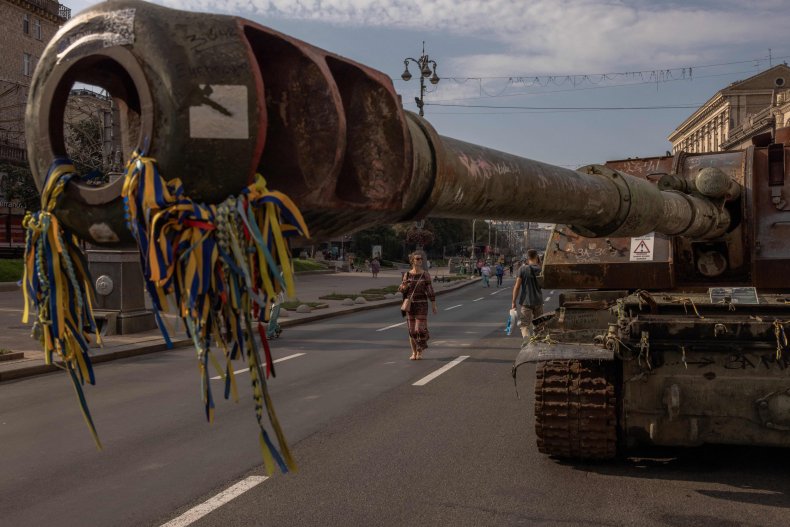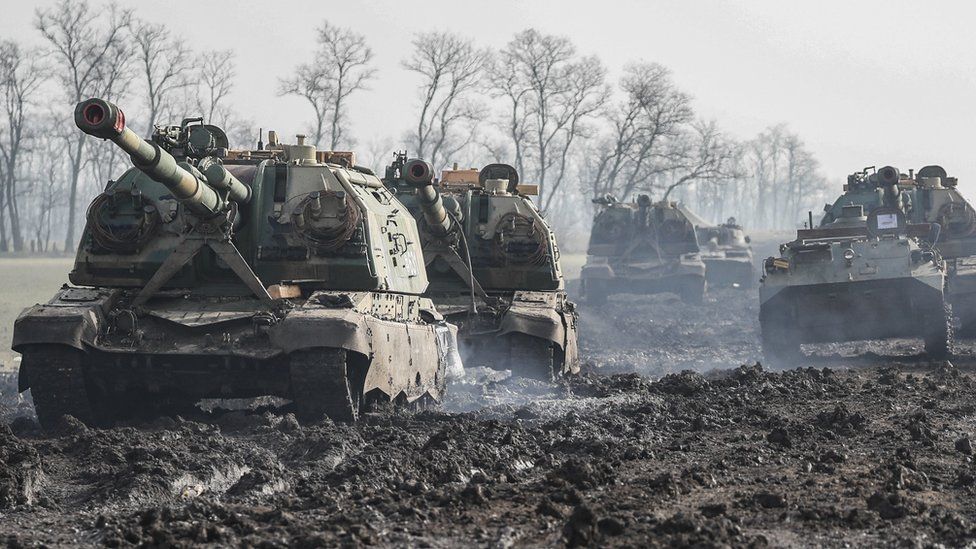Among all the obstacles facing Ukraine’s grinding counteroffensive, Russian anti-personnel and anti-vehicle mines are among the most daunting. Likely routes of attack have been littered with an untold number of explosives, waiting to be activated by advancing Ukrainian vehicles or troops.
Russia’s mine-heavy defense approach has certainly slowed Ukraine’s southern counteroffensive, which after six weeks is yet to rend a significant hole in Russia’s network of minefields, trenches and fortifications. Ukrainian President Volodymyr Zelensky has blamed the “slowed down” operation on delays in the arrival of advanced Western weapons.
This window, Zelensky said, has given “our enemy the time and possibility to place more mines and prepare their defensive lines.”
But a mine-laden defense of the southern front might yet also limit Russia’s own troops. To achieve the war goals repeatedly stated by the Kremlin, Russian units will eventually have to again embark from the so-called Surovikin Line that stretches across southern Ukraine from the Dnieper to Donetsk. Minefields—especially those laid hurriedly and haphazardly—could be a serious complication.
“The Russians have mined the south so heavily that they also cannot advance,” Mark Voyger—a former special adviser for Russian and Eurasian affairs to then-commander of U.S. Army Europe, General Ben Hodges—told Newsweek. “Their forces are going to end up in those same minefields that they’ve laid so heavily, so massively across the south.”
“Even if we imagine that the Ukrainian counteroffensive will stall, even if the Russians wanted to counterattack, I don’t think they could do it now with all the heavy fortifications and minefields that they have there,” said Voyger, who is now a non-resident senior fellow at Center for European Analysis and a professor at American University Kyiv.
“In the south they’re pretty much pinned down to this line of contact,” he added. “If you want to demonstrate initiative and show tactical prowess and maneuvers, it’s probably going to be in the east. I don’t think they were very responsible in mapping everything that they laid.”
Erik Kramer is the director and co-founder of the Kyiv-based Ukraine Defense Support Group, a team of Western military veteran volunteers who have been training Ukrainian troops to hone their frontline combat skills.
Speaking with Newsweek from Kyiv, Kramer concurred that Russia’s mine-laying approach in the south appears to have prioritized volume.
“Their minelaying is extremely haphazard, and it could cause problems for them,” he said. “The problem with all these minefields is that the Russians don’t do mine maps. In the West, in the U.S., whenever we lay out a minefield there has to be an extensive map that’s given to everybody, especially friendly forces.
“You always have lanes in there so you can get through them, so friendlies can get through,” Kramer said. But on the Russian side, “there’s no mine-mapping whatsoever.”

Kramer recalled images sent back from the front by Ukrainian troops he had been working with.
“They showed me several pictures of a wooded area, I would say a 10-meter [107-foot] square area,” he said. “There must have been 10 or 15 anti-personnel mines just thrown on the ground, all over the place, right next to each other. They put them in trees too, they’ll hide some so you get complacent, and you expect you’ve seen all the mines, and then there’s some hidden. They’re just going crazy with the mines.”
Russian mine-laying, Kramer said, chimes with the broader low-tech, casualty-intensive military approach in Ukraine to date.
“They do the same thing with indirect fire,” he said. “They fire on their own people if there’s an attack on them by the Ukrainians. They don’t care. The way they approach human life, they just don’t care compared the Ukrainians. It could cause them some problems down the road, but I really don’t think they care.”
Source : Newsweek















